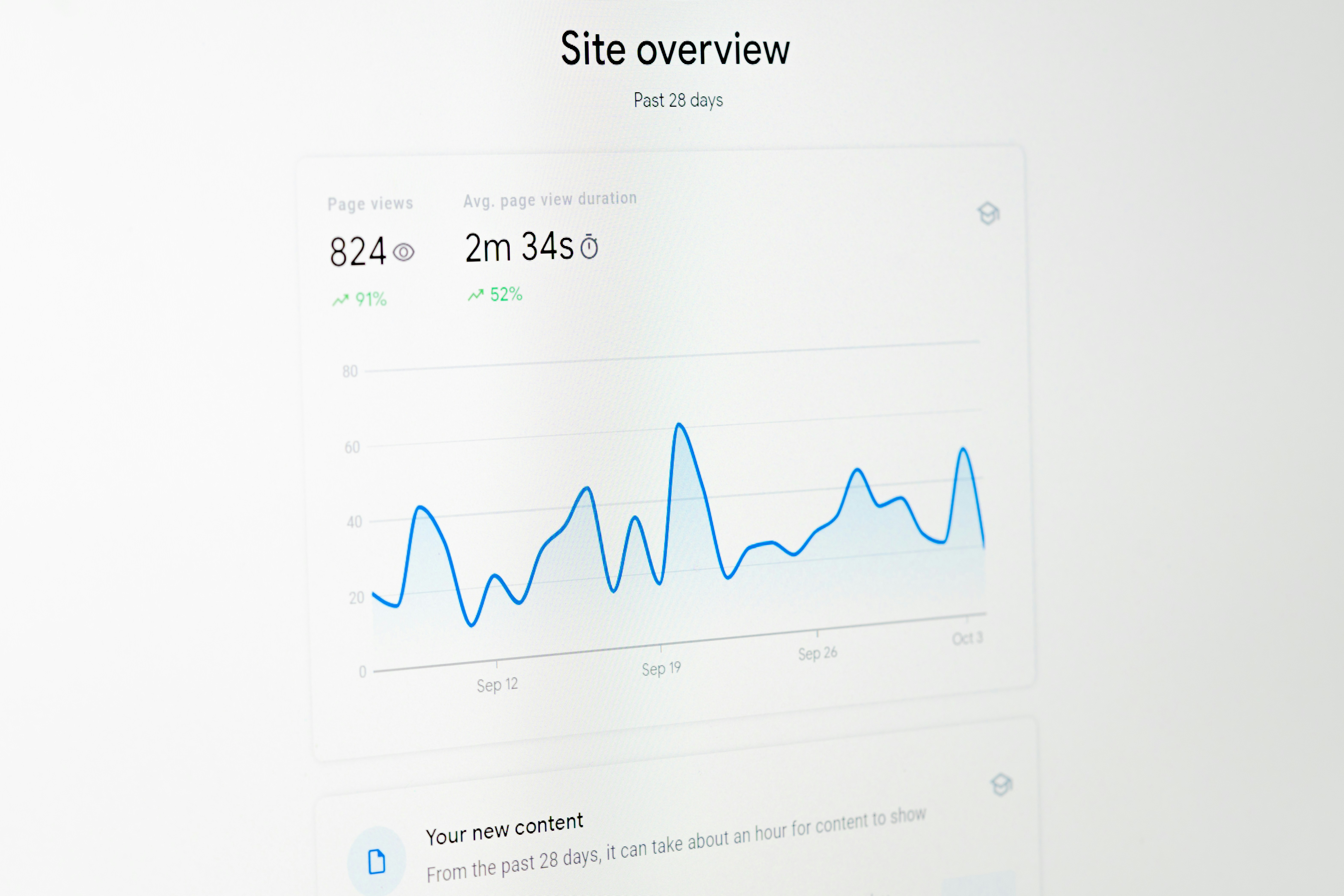The first question most business owners ask about content writing is cost. It’s a fair place to start. Content is one of the most effective ways to grow online, but before investing you want to know what kind of budget makes sense.
The challenge is that most pricing guides pull from US data. That leaves Canadian businesses guessing, even though the market here is different.
This article breaks down what content writing costs in Canada in 2025, the factors that shape pricing, and how to set a budget that matches your goals.
Why Businesses Invest in Content Writing
Content writing is one of the most reliable ways to grow a business online. A well-written article can attract readers, build credibility, and generate leads long after it’s published. Unlike ads that stop when the budget runs out, content continues to work in the background.
The returns are measurable. According to Demandsage, B2B businesses that publish blogs generate 67 percent more leads than those that do not. For many campaigns, a single blog post that ranks can deliver more value than an ad campaign that costs thousands of dollars.
For Canadian businesses, the case is even stronger. Local SEO helps capture customers searching in specific cities and provinces. In bilingual markets like Quebec, publishing in both English and French not only expands reach but also builds trust.
Content writing is not filler. It’s a library of assets that compounds in value, helping businesses grow visibility, authority, and revenue over time.
The Main Pricing Models for Content Writing in Canada
Canadian businesses will typically see four main pricing models when evaluating content writing. Each comes with its own set of advantages and trade-offs, and the right choice depends on your goals and publishing needs.
Per Word
This is one of the most common approaches among freelancers. Rates usually range from $0.10 to $1.00 CAD per word, depending on experience and specialization.
It can be a good fit for straightforward assignments, but costs are harder to predict if the final word count changes or revisions are needed.
Per Project
Here, writers or agencies charge a flat fee for a specific deliverable, such as a blog post, case study, or whitepaper. A 1,500-word blog post might cost anywhere from $100 to $500+ CAD.
The benefit is clarity on cost upfront, though rates vary depending on complexity and turnaround time.
Hourly Rates
Some freelancers and consultants prefer to charge by the hour, often between $20 and $100+ CAD. This model is more common for editing, strategy, or advisory work.
It can be effective for short-term needs, but it’s less practical when scaling ongoing content.
Monthly Retainers
Retainers are typically used by agencies and experienced freelancers, with pricing ranging from $1,000 to $10,000+ CAD per month depending on scope and quantity.
The strength of this model is consistency: businesses know what to budget each month, and writers can deliver on a defined publishing schedule.
At TheArticleRoom, we work with a structured retainer model because it treats content as a system rather than a series one-off projects. This approach builds momentum and creates the kind of compounding results that SEO rewards.

Freelance Content Writing Rates in Canada
Here’s a breakdown of how much freelance writers in Canada typically charge. These are general ranges, but they give you a solid starting point.
Freelancers offer flexibility and competitive rates, which makes them a good option for businesses testing content or working on one-off projects. The trade-off is reliability.
You may need to spend time creating detailed briefs, managing deadlines, and handling gaps if a writer takes time off or moves on. For some companies, the oversight required outweighs the savings.
Agency Content Writing Rates in Canada
Agencies generally charge more than freelancers, but the higher price reflects bundled services. Alongside writing, most include strategy, SEO optimization, editing, and a publishing system that ensures consistency.
The main benefit of working with an agency is strategic oversight. Businesses gain a consistent publishing schedule, SEO built into the process, and a clear framework for scaling.
The trade-off is cost, since agencies charge more than freelancers, and there is sometimes a risk of content losing a personalized voice if it’s not closely managed.
TheArticleRoom Pricing & Approach
At TheArticleRoom, we use a subscription retainer model based on word count. This gives businesses predictable costs, faster delivery, and content that is SEO-ready from day one.
Our model also includes unlimited revisions, which lets us ensure every piece is polished and aligned with your brand’s voice and image exactly how you want it.
Each plan reflects a different content strategy.
Core gives businesses a strong foundation with enough content to publish consistently each month. Growth is ideal for brands scaling their visibility, while Scale is built for teams that want to dominate search by publishing at volume.
Not sure which plan fits your business? Reach out and we'll help map the right content strategy for your business
In-House Content Writer Salary in Canada
For businesses producing a high-volume of content, hiring an in-house writer can feel like the most straightforward option. The trade-off is cost. Salaries in Canada vary depending on experience, but they represent a fixed annual investment plus additional overhead.
On top of base salary, businesses should budget another 20 to 30 percent for benefits, training, and tools. A mid-level writer earning $60,000 per year, for example, could realistically cost closer to $75,000 once everything is factored in.
The main advantage of going in-house is control. A dedicated writer is fully aligned with your brand’s voice and strategy, which is especially valuable for companies publishing daily or handling highly specialized topics.
The trade-off is flexibility. Unlike freelancers or agencies, you’re locking into a fixed cost regardless of how much content is produced. Vacation coverage, turnover, and training add to the overhead.
For many small and mid-sized businesses, in-house hiring only makes sense once content demand reaches a steady, high-volume.
What Factors Influence Content Writing Costs
.jpg)
Not all content is priced the same. Two businesses might commission a blog post of the same length, but the final invoice could look very different. The difference comes down to the factors that influence how much expertise, time, and strategy go into a piece.
One of the biggest drivers in industry specialization. Writers who handle technical fields like finance, legal, or software can charge more because their knowledge is harder to replace. A generalist can write a lifestyle blog, but a fintech article requires deeper research and accuracy.
Another factor is length and depth. A 1,000-word blog post is faster to produce than a 3,000-word whitepaper that needs interviews, research, and data. More depth means more hours and therefore higher cost.
Here are some of the other key factors that push content writing rates up or down:
- SEO expertise: Writers who optimize for keywords, structure, and search intent command premium rates because their work delivers long-term visibility
- Experience level: Entry-level writers charge less, while established professionals with proven portfolios can justify higher fees
- Turnaround times: Urgent or rush projects almost always come with a higher price tag
Understanding these variables helps businesses budget realistically. If your content is highly technical, you’ll likely pay at the upper end of this range.
If you need consistent SEO-focused blogs, investing in experienced writers saves money in the long run because the content continues to perform.
How Much Should You Budget for Content Writing in 2025?
Setting the right budget for content writing depends on your business size, growth goals, and how often you want to publish. Think of it as a long-term investment in visibility and lead generation, not just another monthly expense.
For small businesses, a budget of $1,000 to $3,000 CAD per month is often enough to maintain a steady blog schedule. This usually covers 4 to 6 well-optimized posts that build authority over time.
For mid-sized companies, $3,000 to $7,500 CAD per month supports a stronger strategy. At this level, you can mix in blogs, thought leadership, and more specialized content that positions your brand as an industry leader.
For larger enterprises, content becomes a full-scale operation. Budgets of $7,500 CAD or more per month fund a consistent publishing engine with blogs, whitepapers, case studies, and integrated SEO campaigns.
The real question is not how much content costs but what you get in return. A single blog can keep driving traffic and leads for months, sometimes years. That kind of compounding return is what makes content one of the most cost-effective marketing channels available.
Measuring ROI from Content Writing

The value of content writing is best measured through outcomes, not just cost per piece. Businesses that publish consistently can track returns in three main areas:
- Organic traffic growth
- Leads generated
- Lower acquisition costs
HubSpot reports that companies publishing 16 or more blog posts per month generate nearly 3.5 times more traffic than those posting four or fewer. Even at lower volumes, consistent publishing compounds visibility.
A $500 blog post that ranks well for a year can bring in hundreds of qualified leads. Compared to ads that stop the moment you pause spending, content keeps delivering long-term returns.
For a clear picture of how content writing ROI unfolds, see our guide: How Long Does SEO Content Take to Work? A Clear Timeline for Businesses
Canada vs. US Content Writing Rates
Content writing is more expensive in the United States than in Canada. ZipRecruiter reports the average salary for a US content writer at $84,151 USD per year, which is about $116,000 CAD after conversion. In Canada, writers typically earn $50,000 to $70,000 CAD.
Freelance rates follow the same trend. In the US, averages are $0.15 to $0.25 USD per word (about $0.21 to $0.35 CAD). In Canada, most freelancers charge $0.10 to $0.30 CAD per word, which makes them the more cost-effective option.
Key takeaways for Canadian businesses:
- US averages are consistently higher for both salaries and freelance rates
- A stronger US dollar compounds the cost difference
- Local talent brings added value with bilingual content and market knowledge
For businesses targeting Canadian audiences, this mix of lower costs and local expertise makes working with Canadian writers the smarter choice.
Frequently Asked Questions
Many Canadian businesses have similar questions when budgeting for content. Here are clear answers to the ones that come up most often.
What Is the Average Content Writing Cost in Canada?
Most Canadian businesses pay between $0.10 and $0.25 CAD per word for freelance content writing. Agencies typically charge $250–$750 per blog post or $3,000+ per month on retainer. In-house writers usually earn $50,000–$90,000 CAD annually plus benefits.
How Much Does a 1,500-Word Blog Cost in Canada?
A 1,500-word blog post usually costs between $120 and $500 CAD, depending on the writer’s experience, the industry, and the level of SEO optimization required. Specialized fields like finance or tech can push costs higher.
Do Content Writing Rates Vary by City in Canada?
Yes. Rates are often higher in large markets like Toronto and Vancouver compared to smaller cities. In Montreal, bilingual content in English and French can also increase pricing due to the added expertise required.
Is It Cheaper To Hire a Freelancer or an Agency in Canada?
Freelancers are usually more affordable for one-off projects or small budgets. Agencies cost more but provide strategy, SEO, and consistent publishing systems. The right choice depends on whether you need flexible support or a structured content engine.
Bottom Line
Content writing in Canada is best seen as an investment. Done well, it builds authority, drives steady traffic, and generates leads long after a piece is published.
The model you choose depends on your goals and capacity. Freelancers, agencies, and in-house teams all have strengths, but the return comes from consistency and strategy.
Focus on ROI rather than upfront cost, and view content as a long-term asset. For more perspective, see our post on 10 Industries That Can Benefit From Content Writing.
.svg)
.png)

.png)
.png)
.png)